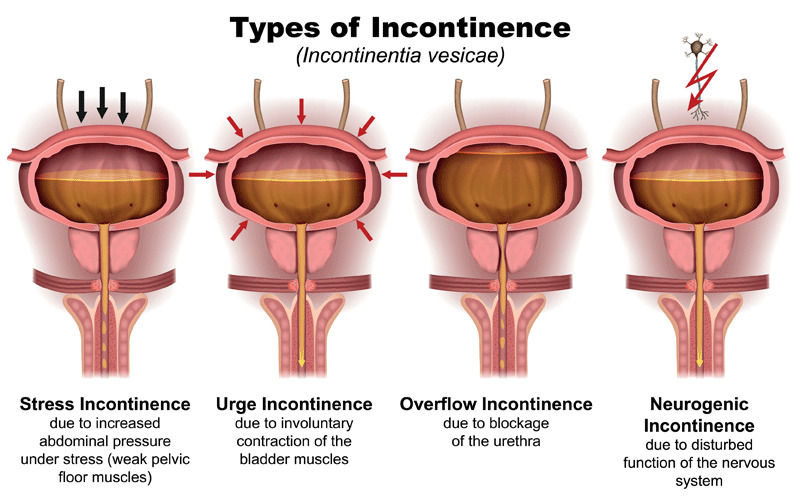-
SALES
- Popular BrandsCetaphilColgateDettolDoveEgo QVGuardianGilletteKloranceKotexKundalMore ...

- Health Supplement
- Popular BrandsCetaphilColgateDettolDoveEgo QVGuardianGilletteKloranceKotexKundalMore ...
Healthy Food ProductsNew- Popular BrandsCetaphilColgateDettolDoveEgo QVGuardianGilletteKloranceKotexKundalMore ...
- Mom & Baby
- Kids
- Personal Care
- Popular BrandsCetaphilColgateDettolDoveEgo QVGuardianGilletteKloranceKotexKundalMore ...
- Skincare
-
Popular BrandsCetaphilColgateDettolDoveEgo QVGuardianGilletteKloranceKotexKundalMore ...
- First Aid
- OTC Medicine
- Popular BrandsCetaphilColgateDettolDoveEgo QVGuardianGilletteKloranceKotexKundalMore ...
- Rehab
- Popular BrandsCetaphilColgateDettolDoveEgo QVGuardianGilletteKloranceKotexKundalMore ...
- All Products
Urinary Incontinence : Urine Leakage Treatment

Every June, World Continence Week shines a spotlight on a health issue that affects millions globally, yet is often shrouded in silence — incontinence. Despite being common, many Malaysians feel too embarrassed to talk about bladder or bowel control problems, let alone seek help. This week is all about changing that.
Let’s explore what incontinence is, why it matters, and how you or your loved ones can manage it with dignity and confidence.
What is Incontinence?
Incontinence is the involuntary loss of urine (urinary incontinence) or stool (faecal incontinence). It’s not a disease itself but rather a symptom of an underlying issue, and it can affect anyone, regardless of age or gender.
Common Types of Urinary Incontinence
- Stress Incontinence
Leakage happens when pressure is exerted on the bladder, such as during coughing, laughing, or lifting heavy objects. More common in women after childbirth or menopause.
- Urge Incontinence (Overactive Bladder)
A sudden, intense urge to urinate, often followed by involuntary leakage. Common among older adults.
- Overflow Incontinence
Frequent or constant dribbling due to a bladder that doesn’t empty completely — often affects men with prostate issues.
- Functional Incontinence
Physical or cognitive impairments (e.g., arthritis, stroke or dementia) make it hard to reach the toilet in time.
How Common is Incontinence in Malaysia?
While exact figures in Malaysia are limited, global data suggests:
- 1 in 4 women and
- 1 in 10 men
will experience some form of incontinence in their lifetime.
With Malaysia’s ageing population and rising rates of obesity and diabetes — both key risk factors — it’s likely that incontinence is underreported and undertreated.

Why Don’t People Talk About It?
Stigma. Many associate incontinence with aging or loss of control, leading to shame, isolation, or even depression. But it’s important to understand:
Incontinence is not a normal part of aging, and it is treatable in most cases.
If you or someone you care for:
- Wears pads frequently due to leakage
- Avoids outings or travel due to fear of accidents
- Wakes up multiple times at night to urinate
- Experiences pain or burning while urinating
It’s time to see a doctor, urologist, or pharmacist. The earlier the intervention, the better the outcome.
Managing Incontinence: What Are the Options?
- Lifestyle Adjustments
- Limit caffeine, alcohol, and spicy food
- Stay hydrated (but avoid overhydration)
- Avoid constipation with a fiber-rich diet
- Maintain a healthy weight
- Pelvic Floor Exercises (Kegel Exercises)
Strengthen the muscles that support bladder control
- Bladder Training
Retrain the bladder to hold urine longer with scheduled toilet trips
- Medications or Devices
Prescription drugs can relax bladder muscles
Devices like pessaries (for women) offer structural support
- Surgery
May be recommended in severe or treatment-resistant cases, especially for stress incontinence
Incontinence Isn’t Just a “Women’s Issue”. While often associated with postnatal or menopausal women, men experience it too, especially after prostate surgery. And children may also suffer from bedwetting or daytime accidents, which deserve attention and empathy, not shame.
Let’s not underestimate emotional well-being. Support groups, online communities, and even a simple, stigma-free conversation can ease the psychological burden of living with incontinence.
In Malaysia, more pharmacies, hospitals, and physiotherapy centres are beginning to offer continence support, but awareness remains key.
This World Continence Week, let’s:
Talk openly about incontinence
Educate compassionately - at home, in clinics, and in schools
Support holistically - physically, mentally, and socially
Because no one should suffer in silence.
If it’s not you, it’s likely someone you know who’s quietly dealing with incontinence. Let’s use this week not just to raise awareness, but to extend kindness, share resources, and promote treatment.
Together, we can break the taboo — one conversation at a time.
Let's keep in touch
Subscribe for our latest news and be the first to know about our offers.











